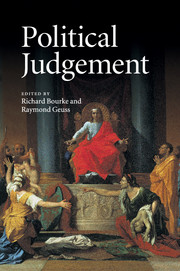Introduction
Published online by Cambridge University Press: 26 December 2009
Summary
Something happened in the West when Socrates began to confront the politicians of his day, the men who spoke in the assemblies and led the armies and navies of Athens, stopping them in the marketplace and asking them to give an account of what they were doing and why they were doing it. It was not exactly a new form of inquiry that was being invented, but a new style of investigation. It is not as if this were a complete and radical break with the past or the absolute initiation of an inconceivably new practice, because as long as there have been human societies there have been problems of coordinating action, resolving disputes, and planning for the future; and planning for the future in any detail means envisaging in words alternative eventualities and courses of action. Once one specifi c possible future has been put into words, it is open to others to describe a different one. And how is discussion then ever to end? The oldest document of Western civilisation, the Iliad, begins with a group of men engaged in a common pursuit – the war against Troy – deliberating about how they should act in the face of an unexpected event, a plague. The real plot begins when Achilles refrains from putting an end to the public discussion by killing the reptilian king, Agamemnon, out of hand, and instead insults him.
Individuals and groups; envisaging the future whilst acting in the present; merit as opposed to status; speaking as against doing; cooperation versus conflict; intentions and their results; success and failure: these and other related contrasts mark out a terrain which humans learn to negotiate with as much dexterousness as they can muster.
- Type
- Chapter
- Information
- Political JudgementEssays for John Dunn, pp. 1 - 26Publisher: Cambridge University PressPrint publication year: 2009
- 4
- Cited by

